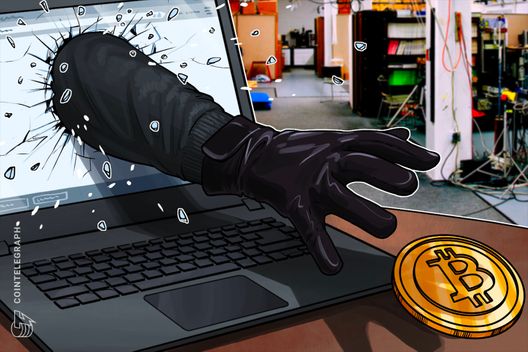Law Decoded: A different Congress hearing, Dec. 6–13
Direct exchanges between U.S. lawmakers and the crypto industry could be finally taking a constructive turn.
145 Total views
30 Total shares

The biggest regulatory story of the week was a United States House Committee on Financial Services hearing squarely focused on crypto. Even the event’s title — “Digital Assets and the Future of Finance: Understanding the Challenges and Benefits of Financial Innovation in the United States” — conveyed a different vibe than countless previous Congressional meetings that had been first and foremost about investor protection or security risks or threats to financial stability.
Judging from reactions from many industry participants and experts, the exchange has been received as an overwhelming net positive, with legislators asking informed questions and otherwise acting like their goal was to understand this new thing rather than act on preconceived notions. Of course, there were tired questions about Bitcoin’s environmental footprint and Representative Brad Sherman’s anti-crypto rants, but the entire thing finally looked a lot like a constructive dialogue between the digital asset industry and lawmakers that we’ve been longing to see for a while.
Below is the concise version of the latest “Law Decoded” newsletter. For the full breakdown of policy developments over the last week, register for the full newsletter below.
Hearing the industry
The hearing, called by the Financial Services Committee Chair Maxine Waters, centered on the role of crypto exchanges, the growth of the stablecoin sector, and general issues around overarching digital asset regulation. Several top crypto CEOs were summoned to represent the crypto space.
Some of the salient themes discussed on the House floor included the crypto-powered decentralization of the digital ecosystem — a politically advantageous angle at the time when many U.S. lawmakers are uneasy about Web 2.0-era tech giants’ power grab — as well as U.S. regulators’ reluctance to give way to certain crypto investment products that could be seen as a symptom of a fragmented approach to regulation. The relationship between the U.S. dollar’s global role and the growing demand for stablecoins also received much attention.
BIS: Terrified of DeFi?
Just not to get too carried away by what feels like a win on the Congress floor, a note on the Bank of International Settlements’ latest report on decentralized finance is in order. The “bank for central banks” took a deep dive into the sprawling DeFi space and came up with a handful of alarmist slogans such as “decentralization illusion” to describe it.
BIS analysts are concerned with some structural aspects of the DeFi landscape, such as liquidity mismatches and the lack of shock absorbers such as banks. The authors of the report maintain that the protocols governing DeFi activity carry risks of centralization, potentially leading to a concentration of power within these systems at the hands of the few. These assertions are sure to raise many eyebrows, especially among those closely familiar with the DeFi space.
CBDC watch
The BIS’ taste for a more controlled financial innovation can be seen in the news about its specialized department, BIS Innovation Hub, being actively engaged in trials of the digital euro-based cross-border settlement, along with the central banks of Switzerland and France. The experiment was deemed a success, but the parties involved made a point to state that it does not warrant the ultimate issuance of a European CBDC.
In other centralized digital currency news, a two-year-long investigation by the Reserve Bank of Australia concluded with a report that highlighted the potential for a wholesale central bank digital currency to improve the efficiency of financial market transactions.








